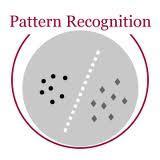Consider the triplet $(E, \mathcal{P}, \pi)$, where $E$ is a finite ground set, $\mathcal{P} \subseteq 2^E$ is a collection of subsets of $E$ and $\pi : \mathcal{P} \rightarrow [0,1]$ is a requirement function. Given a vector of marginals $\rho \in [0, 1]^E$, our goal is to find a distribution for a random subset $S \subseteq E$ such that $\operatorname{Pr}[e \in S] = \rho_e$ for all $e \in E$ and $\operatorname{Pr}[P \cap S \neq \emptyset] \geq \pi_P$ for all $P \in \mathcal{P}$, or to determine that no such distribution exists. Generalizing results of Dahan, Amin, and Jaillet, we devise a generic decomposition algorithm that solves the above problem when provided with a suitable sequence of admissible support candidates (ASCs). We show how to construct such ASCs for numerous settings, including supermodular requirements, Hoffman-Schwartz-type lattice polyhedra, and abstract networks where $\pi$ fulfils a conservation law. The resulting algorithm can be carried out efficiently when $\mathcal{P}$ and $\pi$ can be accessed via appropriate oracles. For any system allowing the construction of ASCs, our results imply a simple polyhedral description of the set of marginal vectors for which the decomposition problem is feasible. Finally, we characterize balanced hypergraphs as the systems $(E, \mathcal{P})$ that allow the perfect decomposition of any marginal vector $\rho \in [0,1]^E$, i.e., where we can always find a distribution reaching the highest attainable probability $\operatorname{Pr}[P \cap S \neq \emptyset] = \min \{ \sum_{e \in P} \rho_e, 1\}$ for all $P \in \mathcal{P}$.
翻译:暂无翻译



